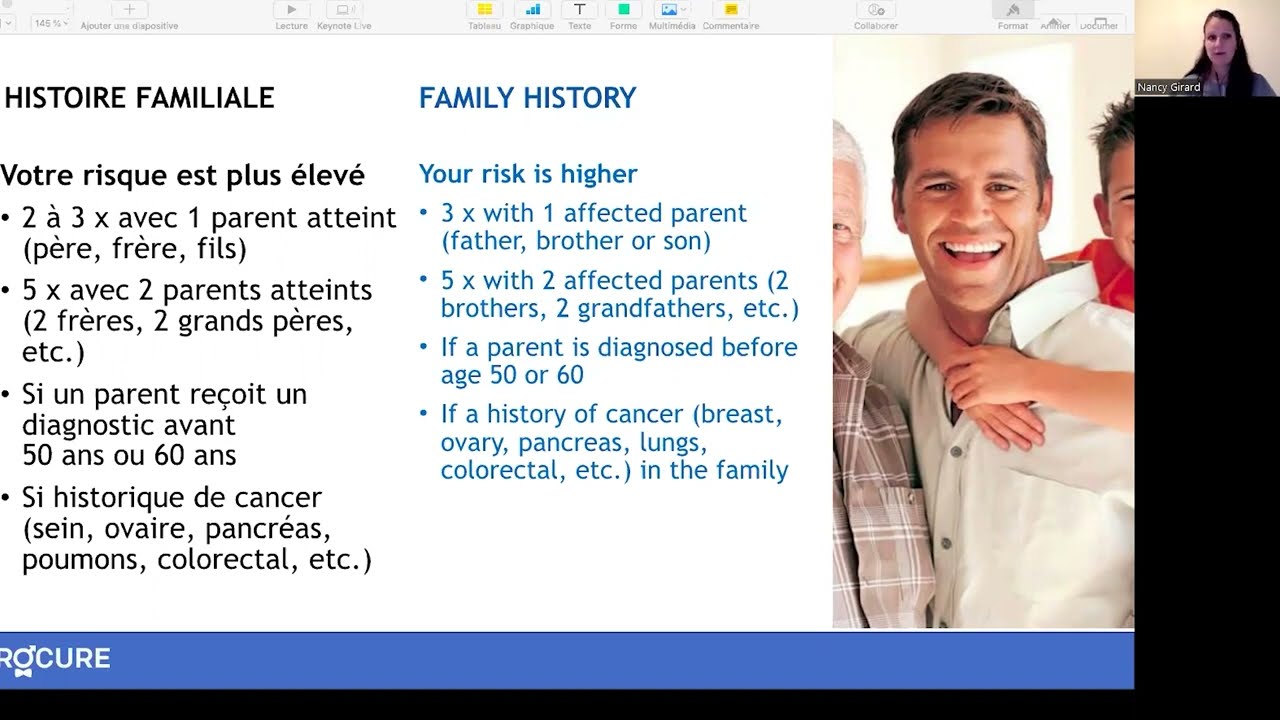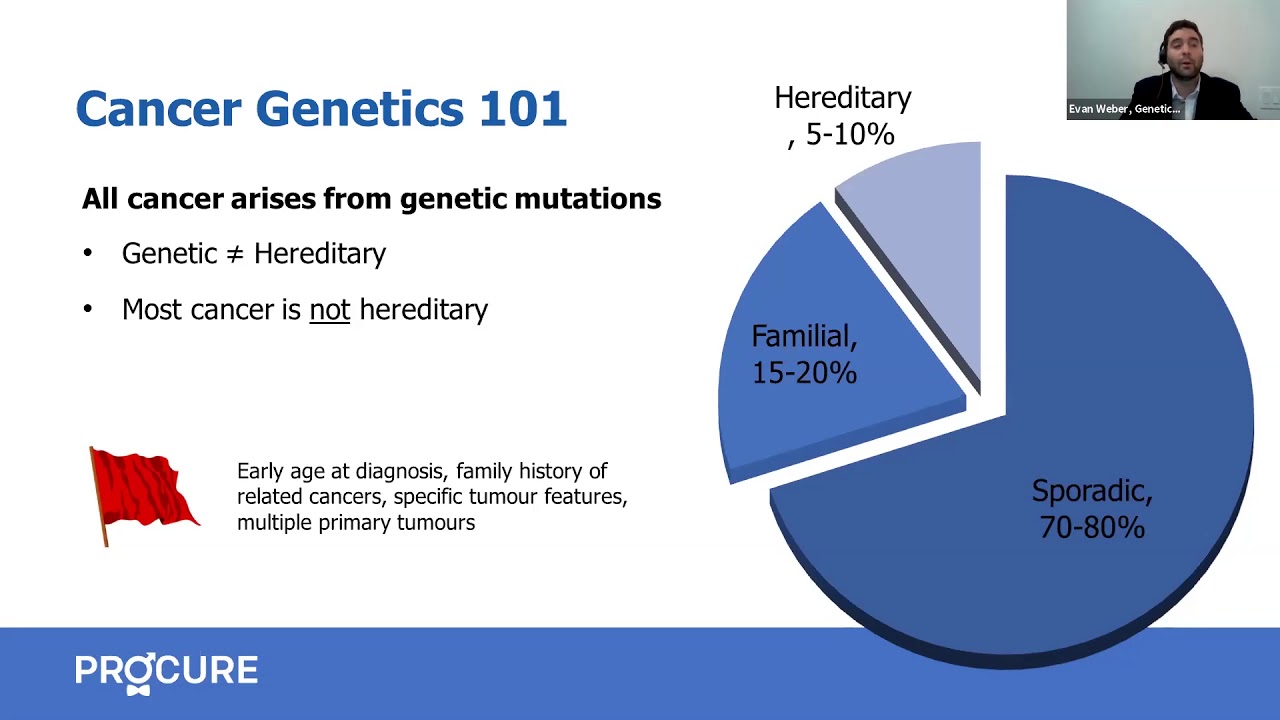Prostate Cancer Awareness Month – Managing stress
- Prostate Cancer Awareness Month – Managing stress
- Commitment #1
- Commitment #2
- Commitment #3
- Commitment #4
- Commitment #5
Prostate Cancer Awareness Month – Managing stress
21 Days to Wellness

During this month dedicated to prostate cancer awareness, we take the opportunity to encourage you to make small changes to improve your overall well-being.
Since maintaining a healthy and active lifestyle is essential for your quality of life (regardless of your prostate cancer diagnosis), we present below five health-promoting behaviors. We invite you to consider which one you find most achievable to adopt in your daily routine over the next 21 days, at a time that suits you perfectly. Each of these behaviors is accompanied by additional information and practical advice to guide you in your journey and facilitate your choice.
Inner Harmony: Managing Stress, Radiating Serenity
Managing stress on a daily basis is of paramount importance, especially before, during, and after prostate cancer treatment. Stress can have a significant impact on physical and emotional health. Effective stress management can help enhance quality of life, strengthen resilience in the face of illness, and prevent chronic diseases or mitigate their impact on health.
Menu
COMMITMENT #1

I commit to turning off screens (television, tablet, phone and computer) at least one hour before bedtime every evening.
Modifiable behavior: Lack of sleep routine
It’s important to address the lack of sleep, as consistent and restful sleep is essential for maintaining good physical and mental health, as well as enhancing our ability to cope with daily stress and manage the side effects associated with prostate cancer treatments. Establishing a bedtime routine is crucial as it signals to your body that it’s time to prepare for rest. Of course, this might sound easier said than done, but let’s explore some basic concepts below to guide you.
Lack of routine can disrupt your biological clock, lead to difficulties in falling asleep and waking up, and exacerbate insomnia. Furthermore, considering that sleep is crucial for physical and mental recovery, neglecting a sleep routine can increase stress and anxiety levels, affect your concentration and mood, raise the risk of accidents and injuries, and even lead to long-term health issues such as cardiovascular and metabolic diseases.
- We need 7 to 9 hours of sleep per night to optimize our daily activities.
- Sleep follows a precise rhythm. Constantly changing the time you go to bed and wake up disrupts your biological clock, making it harder to fall asleep later. Be predictable. Set a regular bedtime and wake-up time to establish a consistent sleep routine; your sleep will become more regular too.
- Your bedroom should be dark and quiet, reserved only for sleep and sexual activities. Avoid eating, watching TV, working, browsing the internet, or reading in bed.
- Blue light disrupts the biological clock, affecting the circadian cycle that tells your brain when it’s time to sleep or be awake. Spending too much time in front of a screen before bedtime can be detrimental to falling asleep. It’s better to read a traditional book to relax your brain.
- Melatonin, your sleep friend, is produced by your body when you’re in darkness. Hence the importance of reducing light intensity in the evening and decreasing exposure to blue light – emitted by tablets and cell phones – to increase and facilitate the secretion of this hormone, helping you fall asleep. You can also take it as a supplement, although there are few studies on its effectiveness or adverse effects.
- Prescription sleep aids should only be taken a few nights a week. If taken daily, you shouldn’t go beyond 4 to 6 weeks. Discuss it with your pharmacist and seek advice if you’re considering over-the-counter sleep aids.
It’s important to understand the difference between occasional insomnia and chronic insomnia to know when to seek help.
- Occasional insomnia is a period of difficulty sleeping that occurs sporadically, usually due to temporary events like stress, anxiety, jet lag, or disruptions in sleep routine. It may last a few nights, but typically resolves once the underlying cause is addressed.
- On the other hand, chronic insomnia is characterized by sleep problems persisting at least three nights a week for three months or more. It can be caused by factors such as medical disorders, mental health issues, chronic stress, or poor sleep habits. Chronic insomnia has a significant impact on quality of life, mental health, and daily functioning. In this case, seeking consultation is necessary.
- In summary, the main difference lies in the duration and frequency of symptoms: occasional insomnia is short-term and sporadic, while chronic insomnia persists over an extended period and occurs frequently.
Lastly, a final overlooked aspect: sleep apnea, snoring, and other sleep hindrances.
If snoring wakes you or your partner, if you wake up gasping for air or with headaches, you might be suffering from sleep apnea. This condition needs to be diagnosed through consultation and shouldn’t be taken lightly.
On the other hand, hot flashes induced by hormone therapy do not endanger your life. However, they can be particularly bothersome for many men undergoing prostate cancer treatment.
In addition to promoting the production of melatonin, the sleep hormone, other benefits of turning off screens at least one hour before bedtime include:
- Allows the brain to gradually prepare for sleep without light interference or stimulation.
- Avoids stressful or stimulating content before bedtime, contributing to a more peaceful state of mind.
- Reduces the impact of negative or stressful information before bedtime, contributing to better mental health.
- Encourages calming activities like reading or meditation, promoting more restful sleep.
- Facilitates a refreshed and energetic wake-up by avoiding the fatigue associated with prolonged nighttime screen exposure.
- Creates time for positive interactions with family or friends before bedtime.
Here’s what you can do today to create a conducive environment for relaxation and sleep better tonight.
- Avoid eating one or two hours before bedtime.
- Set aside time during the day for gentle to moderate exercise, such as taking a leisurely walk.
- If you take a nap, limit it to less than 60 minutes, and do so before 3 PM. Avoid long naps, especially later in the afternoon.
- Arrange your bedroom to your liking (temperature, light, curtains) and ensure that your bed, pillows, and sheets are clean and comfortable.
- Ease up on coffee and alcohol in the late afternoon or evening if you have trouble sleeping.
- Reserve at least an hour to relax before bedtime and engage in sleep-preparation activities like reading or listening to calming music.
- Go to bed only when you are drowsy – when you yawn, your eyelids feel heavy, and you have an irresistible urge to close your eyes, lie down, and sleep.
Unable to Sleep?
If you can’t fall asleep or go back to sleep within 20 to 30 minutes, leave the bed and go to another room.
- Engage in a quiet and boring activity until you feel drowsy again.
- Avoid looking at the clock, watching TV, or turning on bright lights.
- Don’t return to bed too quickly.
- Repeat this step as often as necessary.
Seek professional advice if you experience persistent sleep disturbances, don’t hesitate to seek help from a professional, such as a pharmacist or your doctor. They can advise you on appropriate medications to help you sleep, especially if you’re battling prostate cancer.
Additional resources
- Click on the links below to access more information to help you achieve your commitment:
- In French: How to sleep well at night, your ritual in 10 steps (Centre de médecine intégrée)
COMMITMENT #2

Learning simple and quick relaxation techniques is crucial for facing daily stress and maintaining emotional well-being. By practicing them regularly, such as deep breathing or meditation, you can effectively reduce stress, soothe anxiety, and enhance your ability to manage mental and emotional challenges. By neglecting these accessible methods, you might miss the opportunity to improve your emotional balance, concentration, and overall quality of life.
Relaxation techniques and meditation are two distinct approaches to promoting relaxation and mental tranquility, but they differ in their methods and goals?
- Relaxation techniques often focus on the immediate release of physical and mental stress through methods like deep breathing, stretching, or visualization. They aim to soothe the body and mind, typically in a quicker manner, and can be used to temporarily alleviate stress and anxiety.
- On the other hand, meditation is a deeper practice that aims to cultivate mindfulness and present-moment awareness. It encourages the observation of your thoughts, emotions, and sensations without judgment, thus fostering a deeper understanding of your mind. Meditation tends to be more centered around spiritual development, personal awakening, and long-term inner transformation.
In summary, relaxation techniques center on immediate relaxation and stress release, while meditation aims to develop mindfulness and profound self-understanding over time.
It’s important to understand that both relaxation techniques and meditation are skills that are learned through regular practice.
- Integrating these practices into your daily routine gradually increases their benefits.
- Some individuals may find relaxation techniques more suitable for their active lifestyles, while others appreciate the contemplative approach of meditation.
- The effectiveness of these methods can vary among individuals, sometimes requiring trial and error to find what works best for you.
- Exploring different resources, apps, and mental health professionals can provide guidance and direction to maximize the benefits of these practices in your life.
Other benefits of practicing relaxation techniques daily:
- Deep breathing is beneficial and can be practiced anywhere, anytime, for a few minutes.
- It increases the oxygen supply to your bloodstream, prompting your body to release endorphins, natural hormones that boost energy and promote relaxation.
- Yoga and gentle stretches—even for just five to 10 minutes a day—also promote relaxation to reduce stress.
Not sure where to start?
Here are three simple and quick relaxation exercise approaches to try in order to reduce your stress and anxiety. This way, you can choose the one that suits you best.
Deep Breathing
Take short breaks of a few minutes throughout the day to practice deep breathing and relax.
- Inhale slowly (about 5 seconds) through your nose, allowing your abdomen to expand as air fills your lungs.
- Reverse the movement as you exhale slowly (about 5 seconds).
- Practice this exercise three to five times whenever you feel tense.
Yoga and Gentle Stretching
Incorporate a 5 to 10-minute stretching routine into your schedule to release muscle tension.
- Select a part of your body to stretch.
- As you stretch, focus on the stretched area; imagine the tension leaving it as you stretch it as far as comfortable.
- Exhale as you stretch; inhale as you release. Breathe deeply and slowly without holding your breath.
- Close your eyes to be more aware of your body’s reactions.
Relaxation Exercises
Slow down your breathing to calm yourself. Do this exercise for 10 minutes or more, as you prefer, to soothe the mind.
- Lie on your back with your arms at your sides.
- As you inhale, raise your arms toward the ceiling (with bent elbows). Bring your arms all the way up and return them to the floor above your head.
- Repeat the reverse: exhale slowly and gently, bringing your arms back down alongside your body.
- Then, inhale and exhale slowly without moving your arms; relax and enjoy the sense of peace this exercise brings.
Additional resources
- Click on the links below to access more information to help you achieve your commitment:
- Recognizing and handling stress (Heart and Stroke Foundation of Canada)
- Manage your stress (Heart and Stroke Foundation of Canada)
COMMITMENT #3

It’s important not to overlook relaxation activities in your daily routine, as they play a crucial role in stress management, maintaining emotional balance, and preserving mental health. Neglecting regular moments of relaxation can lead to elevated levels of chronic stress, emotional fatigue, physical exhaustion, and poor sleep quality.
Relaxation activities or moments differ from person to person. Often, the mistake is not listening to your own needs and instead preferring to engage in a relaxation activity suggested by someone else: “Come on, it’ll be good for you!” The important thing is to listen to yourself and ask whether the suggested activity will truly relax you and bring you joy, or if it doesn’t align with your personal preferences at all. Do what you enjoy, an activity that brings you immense pleasure!
Everyone has their own preferences; it can be anything and everything! For example:
- Playing a strategy game
- Visiting a park
- Trying a new restaurant
- Calling a close friend
- Reading a book
- Cooking
However, it’s important that this activity is something you personally enjoy. If someone suggests watching a series on Netflix, but what truly brings you joy is going for a bike ride, opt for the bike ride. It’s not about being innovative, but about doing something you’re familiar with, a tried-and-true activity to start with.
Sometimes, a lack of confidence in one’s own tastes and personal needs can lead a person to neglect their choices of relaxation activities in favor of others’. Some individuals might feel uncertain about what truly relaxes them and may seek cues from others to fill this clarity gap.
Professional or family obligations can also play a role, preventing some people from taking time for their own relaxation activities and causing them to conform to others’ preferences.
It’s important to recognize the significance of following one’s own choices of relaxation activities to cultivate authentic well-being and to take the time to connect with oneself to understand what truly brings pleasure and personal relaxation.
Laughter as a relaxation activity?
Yes, laughter is indeed a part of relaxation activities and moments. It’s a natural response that releases endorphins, the happiness hormones, in our bodies. Moments of laughter, whether from watching a comedy, spending time with friends, or simply appreciating humor in daily life, contribute to relaxing the mind and bringing a sense of joy and lightness.
Here are a few advantages when you engage in relaxation activities that align with your interests and needs, for at least 30 minutes a day:
- You experience a sense of satisfaction and personal fulfillment.
- You disconnect from daily stress, recharge your batteries, and restore your mental and emotional energy.
- You enhance your creativity, improve your focus, and contribute to improving your quality of life.
Not sure where to start?
If you already have a hobby you enjoy but have set aside for various reasons, schedule at least 30 minutes in your routine to reconnect with this activity and engage in it regularly.
If you don’t have any hobbies, take some time to make a list of things you enjoy and that make you feel good each time. Then, allocate time for that moment or relaxation activity. For example:
- Schedule an evening each week to engage in an activity like painting, drawing, taking a relaxing bubble bath, or using essential oils to unwind after a busy day.
- Block out time in your schedule to take a nature walk and enjoy the calm and tranquility.
- Create a relaxation space where you can retreat and unwind when needed, like a cozy reading nook or a spot for crossword puzzles, word searches, or other games.
- Listen to soothing music during your car commute instead of the news to relax during the journey.
- Get close-up binoculars to listen to bird songs and observe birds and other animals. Try to identify them.
- Go outside at night to observe the stars and contemplate the beauty of the universe.
- Try a new relaxing activity each month, like gardening, coloring mandalas, pottery, cooking, etc., to broaden your horizons and discover new sources of relaxation.
- Take the time to explore activities, classes, and workshops offered by your city, either through their distributed bulletin or online on their website.
Additional resources
- Click on the links below to access more information to help you achieve your commitment:
- In French: 15 astuces pour prendre soin de vous au quotidien (Espace Fitness)
- In French: Le stress apprivoisé (Association canadienne pour la santé mentale)
COMMITMENT #4

It’s crucial not to let negative thoughts take over our minds, as they can have a profound impact on our mental and emotional well-being. When we allow ourselves to be overwhelmed by negative thoughts, they can reinforce stress, anxiety, and depression, compromising our judgment and our ability to cope with challenges. By giving too much attention to these thoughts, we risk losing sight of the positive aspects of our existence and diminishing our motivation to take innovative actions.
A Vicious Cycle
Negative thoughts can easily become a vicious cycle by fueling a cycle of negative thoughts and emotions that reinforce each other.
It all starts with a negative thought, whether related to stress, anxiety, self-doubt, or other negative feelings. This initial thought triggers corresponding emotions like sadness, frustration, or anger, which in turn reinforce the original negative thought. This ongoing feedback loop can lead to a downward spiral, where negative thoughts generate more intense negative emotions, further reinforcing negative thoughts.
This vicious cycle can significantly impact our mental well-being, amplifying stress, lowering self-esteem, and increasing anxiety levels. Therefore, it’s important to break this cycle by adopting strategies to manage and control negative thoughts, promoting a more positive and balanced perspective.
The Enemy Within: The Hamster
The concept of the “hamster in the head” is a metaphor often used to describe the phenomenon of repetitive and intrusive negative thoughts. Just like a hamster that endlessly runs on a wheel, negative thoughts can feel like they’re looping endlessly in our minds.
This image illustrates how negative thoughts can take control of our mental processes, occupying our attention and preventing us from focusing on other positive things. The “hamster in the head” symbolically represents how negative thoughts can become a vicious cycle, locking us into a cycle of mental rumination.
The goal is to recognize this phenomenon and develop strategies to break this cycle, preserving our mental and emotional well-being.
In the age of instant information and easy access to a multitude of online resources, searching for information has become commonplace, especially for those experiencing health symptoms. However, it’s important to recognize that this quest for information can sometimes lead to undesirable effects, including an increase in negative thoughts and anxiety.
For a man experiencing health symptoms, turning to Google and online websites can expose them to alarming content, incorrect self-diagnoses, and negative scenarios. This information overload can intensify worries and contribute to the spiral of negative thoughts. In this context, it’s crucial to understand how exposure to information can impact our mental well-being and to adopt a thoughtful approach to seeking information, including medical information, online.
Here are a few examples that can fuel negative thoughts:
For a man experiencing symptoms and searching for information online
- Search results may present medical information in an alarming way, thus amplifying concerns about the seriousness of the symptoms.
- Online research can lead to self-diagnosis, where an individual misinterprets symptoms and creates negative scenarios without medical consultation.
- Online content may focus on the most severe scenarios and risks associated with symptoms, thereby fueling anxiety.
- Online information might lack precise medical context, allowing for misinterpretations based on limited knowledge.
- When symptoms are not clearly explained online, it can lead to anxiety and negative thoughts related to uncertainty and lack of understanding.
For a man diagnosed with prostate cancer searching for information online
- When patients compare their situation to more severe cases or negative experiences shared online, it can generate excessive negative thoughts.
- Online information might emphasize the risks and possible complications of treatment, increasing worries and negative thoughts.
- Unfounded rumors or negative testimonials shared online can negatively influence the patient’s perceptions and thoughts.
- The unknown can be a source of anxiety, and online information can sometimes amplify this fear by exposing the unknown aspects of treatment and the disease.
Other benefits of writing down three positive things that happened every day:
- By recording your successes and positive moments, you create a tangible record of your accomplishments. This daily reminder of small victories can strengthen your confidence in your abilities and encourage you to approach new challenges with optimism.
- The simple act of acknowledging and writing about the positive moments of your day can intensify your positive emotions. It allows you to relive and savor these moments, contributing to a happier daily experience.
- You condition your mind to actively seek out the pleasant aspects of life. This can create a positive cycle where you become more attuned to positive moments, leading to a more positive attitude throughout the day.
Not sure where to begin?
First and foremost, reduce the habit of constantly seeking information about your medical condition as it can heighten anxiety.
- Trust your medical team to provide you with the necessary information and ask them questions when needed.
- Visit reliable sources such as PROCURE’s website, or reach out to us to speak with a healthcare professional confidentially and for free 7 days a week.
- Practice mindfulness by taking a few minutes each day to observe your thoughts without judgment, allowing them to pass without clinging to them.
- When you experience a negative thought, immediately replace it with a positive affirmation like “I am capable of handling this” or “I am worthy of happiness.”
- Share your negative thoughts with a trusted friend or family member, seeking their support and objective perspective to help you overcome them.
- Train yourself to step back from negative thoughts by asking yourself: “Is this thought realistic or exaggerated?” This will help you gain clarity and objectivity.
Regarding this commitment, here are some tips:
- Use what makes your life easier to jot down your positive thoughts: you can use a notebook, an online journal, sticky notes on your fridge, or your bathroom mirror
- Always keep a pen at hand, such as your favorite one.
- Choose a time of day, like morning or before bedtime, to sit down and reflect on positive moments.
- Avoid generalities. Note specific details about what went well, how you felt, and why it was positive for you.
- Look for positive aspects in various areas of your life, whether it’s work, relationships, hobbies, or even small daily joys.
- Make it a daily habit, even if it means starting by noting just one positive thing. Consistency is key. Even small achievements matter. Be open to acknowledging moments of happiness, whether they’re significant or modest.
- Occasionally, take a step back to reread what you’ve noted. It can show you how your positive perspective evolves over time.
The benefits of this practice may take some time to fully manifest, so be patient and persistent. By incorporating these tips, you can start noting and appreciating positive moments in your life more meaningfully.
Additional resources
- Click on the links below to access more information to help you achieve your commitment:
- Les bienfaits d’un journal de gratitude et comment s’y mettre (Lumino Santé)
- Reconnaître ses qualités positives (Université d’Ottawa)
COMMITMENT #5

It’s extremely important not to be alone, especially when you’re ill, because isolating yourself can intensify stress, worry, and sadness. Several studies have clearly established that certain psychological factors like stress, anxiety, depression, and lack of adequate social relationships have a negative impact on health, increase the risk of chronic diseases, and significantly decrease life expectancy. Having a connection with others, even if they are strangers, can truly enhance emotional and mental well-being.
Don’t confuse social isolation, loneliness, and living alone. The main difference between social isolation and loneliness is how people perceive it.
- Social isolation is characterized by the decline or absence of interactions (contacts) with others.
- Loneliness, on the other hand, is a felt emotion: you can be surrounded by others but still feel alone.
- Living alone simply means being the only member of a household, the sole occupant of a residence. A person can live alone without being socially isolated or experiencing loneliness.
While more women tend to live in isolation, men are proportionally more likely to become isolated as they age, as they are less inclined to ask for help and address certain risky situations.
Numerous studies have shown that socially engaged individuals are generally healthier and have a lower risk of depression and cognitive decline (e.g., memory, concentration, planning, organization). The good news? The negative impact of social isolation is reversible when commitment is made to address it.
For an individual facing cancer, the experience of loneliness can be both an emotional disconnection and a physical isolation. They go through situations and emotions that very few family members or friends can relate to unless those individuals have also experienced cancer themselves.
They might isolate themselves for various reasons:
- The person might fear that others won’t understand or know how to react to their situation, leading them to avoid social interactions.
- Some individuals may feel shame related to cancer or its side effects, which can prompt them to socially withdraw to avoid judgment.
- Cancer treatments can result in significant physical and emotional fatigue, limiting the person’s ability to engage in social activities.
- Symptoms, frequent medical appointments, and health-related restrictions can make it challenging to participate in social activities, pushing the person toward isolation.
- The physical effects of cancer and its treatments, such as weight changes, can lead to decreased self-confidence and promote isolation.
- Intense emotions and life changes can make communicating with others difficult, contributing to isolation.
- Cancer can lead to a loss of interest in previous social activities or hobbies, which can result in social withdrawal.
Breaking isolation offers a range of significant benefits. Here are some examples:
- Interacting with other people can stimulate the production of positive neurotransmitters, improving your mood and reducing feelings of depression and anxiety.
- Creating a support network with friends and loved ones who can provide comfort and encouragement during challenging times.
- Positive social interactions enhance self-confidence, allowing you to feel better about yourself and express your opinions and needs.
- Sharing concerns and exchanging experiences with others can reduce stress and promote a sense of emotional relief.
- Social interactions add variety and meaning to your daily life, allowing you to discover new activities, interests, and perspectives.
- Conversations and exchanges with others stimulate your brain, preventing mental decline.
- Breaking out of isolation reduces the risk of developing chronic isolation, which can have devastating effects on physical and mental health.
Not sure where to start?
Here are some simple and practical tips to help you break out of isolation.
The idea is to gradually start seeking out opportunities for free local outings, contacting a friend or family member, but doing so when your energy level is highest during the day. If it’s in the morning, then plan your activities in the morning.
- Commit to participating in small social activities, like taking a short walk with a friend or joining a local event.
- Look for groups or clubs that share your interests, whether it’s gardening, reading, or other activities. This will allow you to meet like-minded individuals.
- Stay connected with your friends and family through phone calls, text messages, or video calls to maintain the connection, even from a distance, at least once a week on alternate days.
- Explore volunteer opportunities in your community. This can help you meet new people while contributing to a cause you care about.
- Attend local events such as markets, lectures, concerts, or workshops. Check your city’s newsletters or website. It’s a chance to meet people from your area.
- Sign up for classes or workshops, whether it’s to learn a new skill or simply to socialize with other participants.
- When invited to events, make an effort to participate even if it might feel challenging.
- Discuss your feelings of isolation with a friend, family member, or healthcare professional. They can help you find solutions and support.
- Join online discussion groups or forums on topics of interest, which can help you connect with others who share the same interests.
- Invite someone for a coffee, a walk, or to participate in an activity you enjoy.
Additional resources
- Click on the links below to access more information to help you achieve your commitment:
- Support for caregivers (L’APPUI proches aidants)
- Loneliness, isolation and your heart health (Heart and Stroke Foundation of Canada)
Additional Information - Prostate cancer

Is prostate cancer hereditary?
Understanding the hereditary and genetic aspects of this disease can provide valuable information to both individuals affected and their families.

Genetics and prostate cancer
Do you have a family history of cancer? Your doctor might recommend genetic screening.

Symptoms, risk and screening
Are you over 50 or experiencing urinary problems? Discover why early screening for prostate diseases is important.

From prostate to screening
Learn about the role of your prostate, related diseases, symptoms to watch out for and risk factors.

Genetic predisposition to prostate cancer
Although rare, some hereditary genetic mutations can increase your risk of prostate cancer.

Do you have a curved penis?
Is your penis curved? Does it curve to the left, right, upward, or downward? You have a curved penis and you or your partner want to know why?

Can I prevent BRCA-related prostate cancer?
How to prevent BRCA-related prostate cancer? Can I have a radical prostatectomy or a proactive treatment to prevent prostate cancer?

What is a genetic mutation?
Do you have a significant family history of cancer? Is there a link between prostate cancer and a genetic mutation?

My balls hurt!
While sore balls are a common experience and usually no cause for concern, it’s important to familiarise yourself with symptoms in case it’s a sign of something serious.

I feel a heaviness in my underwear
I feel a heaviness in my underwear and I know it’s not normal… And sure enough, you notice your balls are much bigger than usual.

What women should know about prostate cancer
As a woman, you might think that prostate cancer is not your concern because you don’t have a prostate. However, prostate cancer is the most common cancer in men.

Why a health check?
The short answer to this question is to assess your health. This is the starting point for a health check. Could we be in the presence of potential undetected diseases?

10 signs that encourage you to see a doctor
There are many reasons why men will be referred to a specialist, and if you experience any of the following symptoms you should see a family doctor. Here are 10 signs that encourage you to consult. You should also know that unless you go to a private clinic, you cannot consult a specialist directly, such as […]

From your prostate to screening in 5 points
From your prostate to screening in 5 points. Gentlemen, are you over 50 years old, or have you been having urinary problems for some time now? Several diseases can affect your prostate, and it’s important to detect them early. Let’s take a closer look. The size of a walnut, the prostate is located just below […]
Sources and references
- Le stress apprivoisé
- Qu’est-ce qu’un trouble anxieux?
- Écoute-Entraide
- Ordre des psychologues du Québec
- Association des psychologues du Québec


